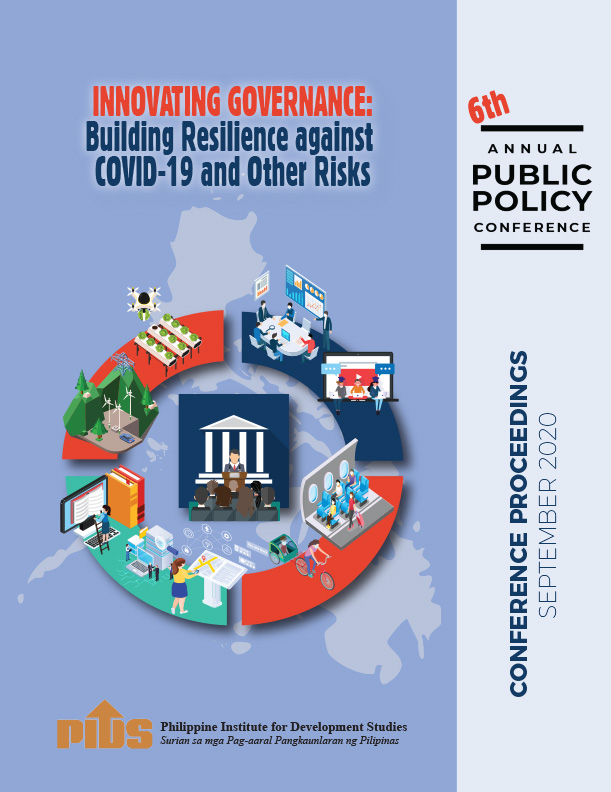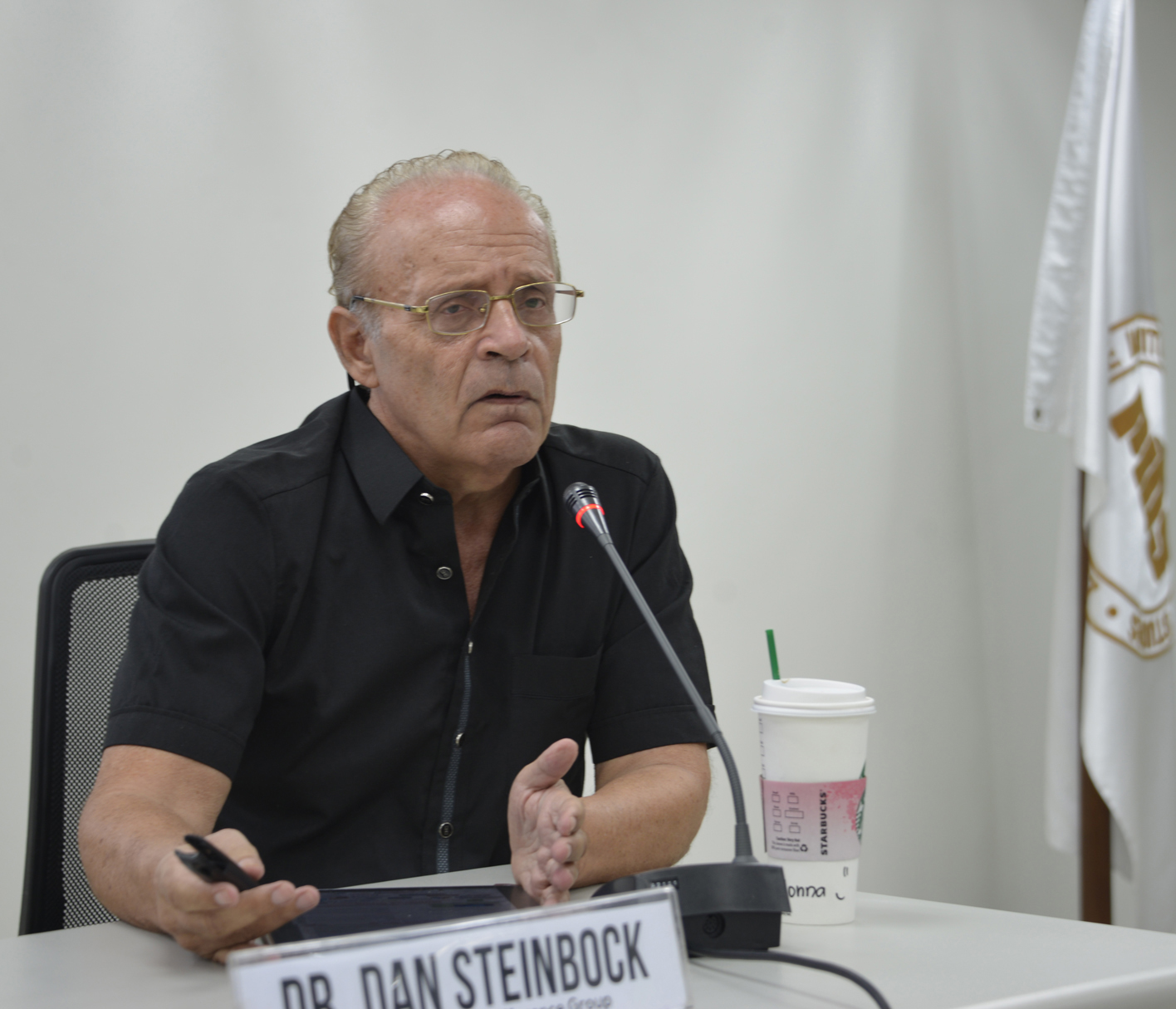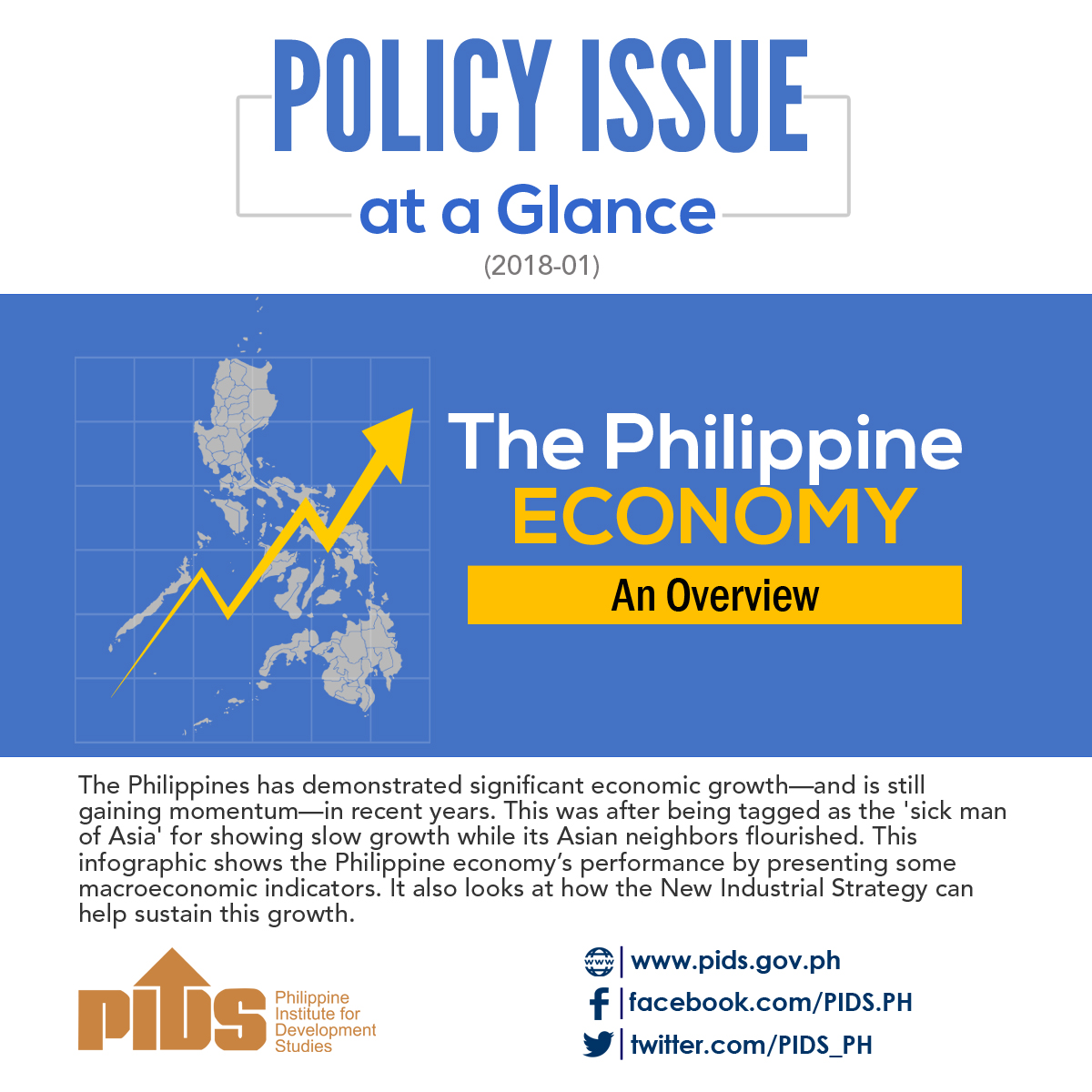Philippine Institute for Development Studies (PIDS) President Josef Yap sees an improved and better economy in 2012. In his annual forecast of the economy, based on trends and developments in the previous year, Yap expects gross domestic production (GDP) to grow at 5.6 percent.
Although this growth forecast is still below the 7-8 percent growth target contained in the Philippine Development Plan, Yap said that it is nonetheless an auspicious outlook considering the countrys dismal economic performance last year. He also said that, with appropriate policies in place, 2012 could be a transition year toward an era of higher and sustained economic growth. He urged the government to take advantage of this more favorable economic environment to implement required economic, social and political reforms to ensure that growth will equitably benefit the people.
Yap explained that GDP growth will be largely stimulated by the revival of public spending which decelerated and was a major cause of the dip last year. The implementation of the infrastructure projects of agencies like the Department of Public Works and Highways (DPWH) and the Department of Transportation and Communication (DOTC) is expected to be a key growth driver for this year.
At the same time, continued expansion of manufacturing and service sectors will drive growth this year. Manufacturing grew by 4.7 in 2011 despite export contraction, while service sector grew by a respectable 5 percent in 2011. In addition, agriculture is also expected to recover from the impact of natural calamities last year and grow by 2.5 percent this year.
Meanwhile, the government should be wary of the downside risks brought by the continued international economic crisis and rise in fuel and food prices. Yap, citing from the IMF World Economic Outlook, said that global economic growth is expected to decelerate further to 3.3 percent this year and this will have concomitant effects to our economy, particularly to the export sector.
The brewing dispute in the Middle East has resulted in the rise of fuel prices which adversely affects our fuel-dependent economy. According to www.oilprice.net, international fuel prices in February 2012 have reached $121.66/ per barrel for Brent crude oil. If this trend continues, inflationary pressures will increase because food prices are partly determined by fuel price. Yap forecasts inflation to be higher than 4 percent in 2012. He explained that the government should contain inflation because it reduces spending and curtails production.
A critical aspect that will be a major economic determinant this year will be the attainment of a favorable political situation. Hence, Yap articulated that it is an imperative to have a successful closure of the impeachment trial of the Chief Justice; otherwise, political uncertainty may ensue and may hamper investment. He further expressed that the confidence being enjoyed by the current administration is a positive attribute that can be harnessed to accelerate the economy through new businesses and stable investment inflows.
Yap`s article titled The Philippine Economy in 2011 and Prospects for 2012 appears in the January-February 2012 issue of the Development Research News. It is co-authored by PIDS Research Consultant Adoracion Navarro and will also be published in the book Economic Policy Monitor (EPM) in March. As one of the leading advocates for evidence-based policymaking in the country, PIDS publishes the EPM to analyze various development issues confronting the country and to recommend as well as analyze corresponding policies.
Although this growth forecast is still below the 7-8 percent growth target contained in the Philippine Development Plan, Yap said that it is nonetheless an auspicious outlook considering the countrys dismal economic performance last year. He also said that, with appropriate policies in place, 2012 could be a transition year toward an era of higher and sustained economic growth. He urged the government to take advantage of this more favorable economic environment to implement required economic, social and political reforms to ensure that growth will equitably benefit the people.
Yap explained that GDP growth will be largely stimulated by the revival of public spending which decelerated and was a major cause of the dip last year. The implementation of the infrastructure projects of agencies like the Department of Public Works and Highways (DPWH) and the Department of Transportation and Communication (DOTC) is expected to be a key growth driver for this year.
At the same time, continued expansion of manufacturing and service sectors will drive growth this year. Manufacturing grew by 4.7 in 2011 despite export contraction, while service sector grew by a respectable 5 percent in 2011. In addition, agriculture is also expected to recover from the impact of natural calamities last year and grow by 2.5 percent this year.
Meanwhile, the government should be wary of the downside risks brought by the continued international economic crisis and rise in fuel and food prices. Yap, citing from the IMF World Economic Outlook, said that global economic growth is expected to decelerate further to 3.3 percent this year and this will have concomitant effects to our economy, particularly to the export sector.
The brewing dispute in the Middle East has resulted in the rise of fuel prices which adversely affects our fuel-dependent economy. According to www.oilprice.net, international fuel prices in February 2012 have reached $121.66/ per barrel for Brent crude oil. If this trend continues, inflationary pressures will increase because food prices are partly determined by fuel price. Yap forecasts inflation to be higher than 4 percent in 2012. He explained that the government should contain inflation because it reduces spending and curtails production.
A critical aspect that will be a major economic determinant this year will be the attainment of a favorable political situation. Hence, Yap articulated that it is an imperative to have a successful closure of the impeachment trial of the Chief Justice; otherwise, political uncertainty may ensue and may hamper investment. He further expressed that the confidence being enjoyed by the current administration is a positive attribute that can be harnessed to accelerate the economy through new businesses and stable investment inflows.
Yap`s article titled The Philippine Economy in 2011 and Prospects for 2012 appears in the January-February 2012 issue of the Development Research News. It is co-authored by PIDS Research Consultant Adoracion Navarro and will also be published in the book Economic Policy Monitor (EPM) in March. As one of the leading advocates for evidence-based policymaking in the country, PIDS publishes the EPM to analyze various development issues confronting the country and to recommend as well as analyze corresponding policies.











